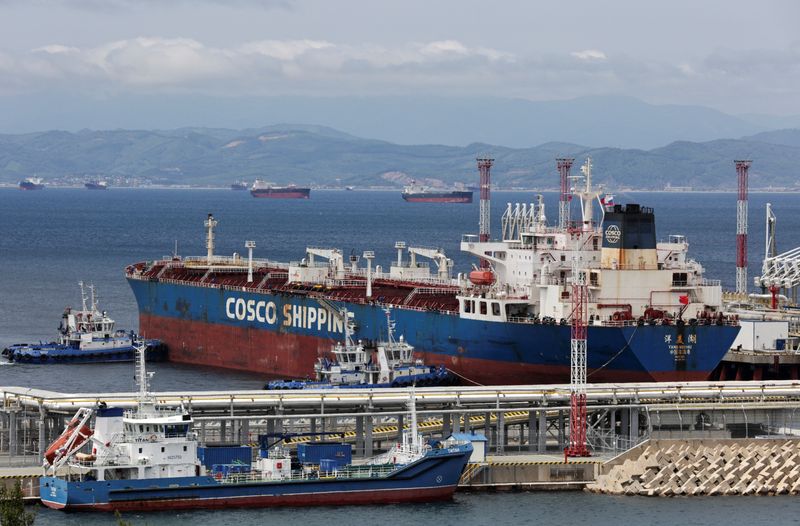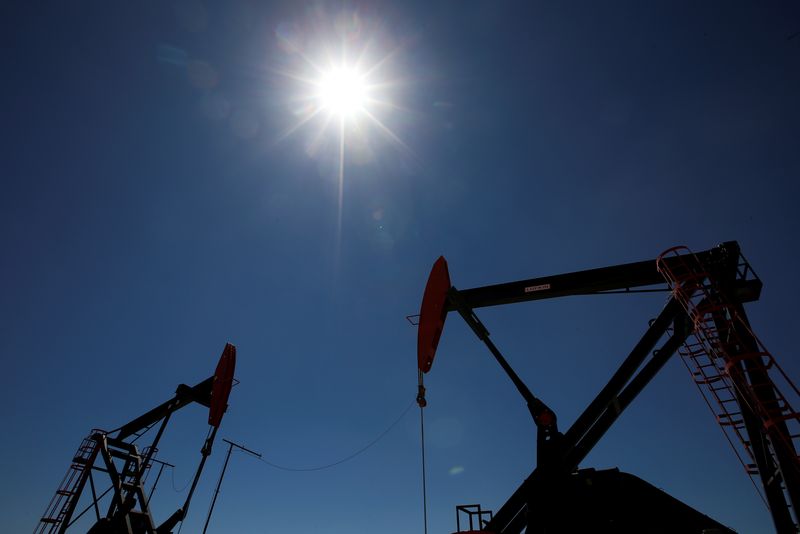By Stephanie Kelly
NEW YORK (Reuters) -Oil prices rose on Monday in a session of volatile trade as tight global supplies outweighed worries that demand would be pressured by a flare-up in COVID-19 cases in Beijing and more interest rate hikes.
Brent crude rose 26 cents to settle at $122.27 a barrel. U.S. West Texas Intermediate crude rose 26 cents to settle at $120.93 a barrel. Trade was volatile, with prices down about $3 a barrel earlier.
Oil supplies are tight, with OPEC and allies unable to fully deliver on pledged output increases because of a lack of capacity in many producers, sanctions on Russia and unrest in Libya that has slashed output.
Oil has surged in 2022 as Russia's February invasion of Ukraine compounded supply concerns and as demand recovered from COVID-19 pandemic-related lockdowns. In March, Brent hit $139, the highest since 2008. Last week, both oil benchmarks rose more than 1%.
"We were struggling with the Russian loss (of oil) so now add an exclamation point with the Libyan situation," said Robert Yawger, executive director of energy futures at Mizuho.
On Saturday, the average price of U.S. gasoline exceeded $5 a gallon for the first time, AAA data showed.
Prompting demand concerns, Beijing's most populous district Chaoyang announced three rounds of mass testing to quell a "ferocious" COVID-19 outbreak.
"We don't know what's going to happen with China. The mood is dour right now," said Phil Flynn, analyst at Price Futures.
Concern about further rate hikes, heightened by Friday's U.S. inflation data showing the consumer price index rose 8.6% last month, also pressured oil lower. [MKTS/GLOB]

Other financial markets fell too, as investors worried that the Federal Reserve may tighten policy too aggressively and cause a sharp economic slowdown. The S&P 500 was on track to confirm a bear market. The next Fed policy decision is on Wednesday.
In Europe, Francesco Giavazzi, the closest economic adviser to Italian Prime Minister Mario Draghi, said on Monday that European Central Bank interest rate hikes were not the right way to curb surging price rises.
